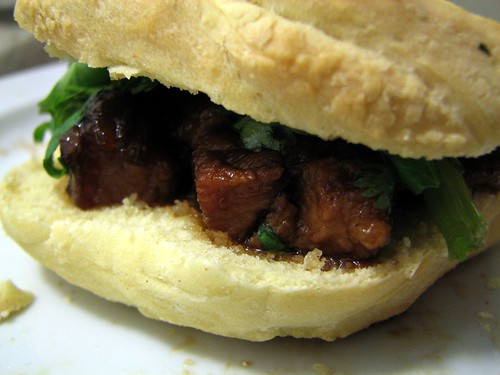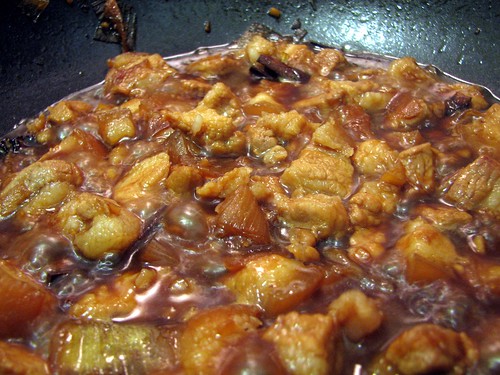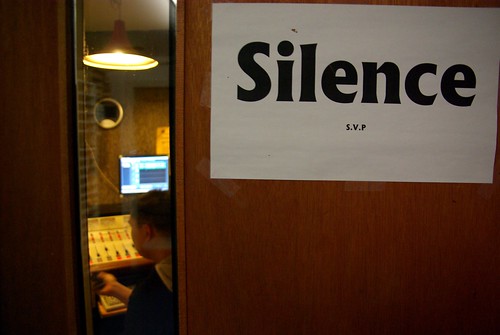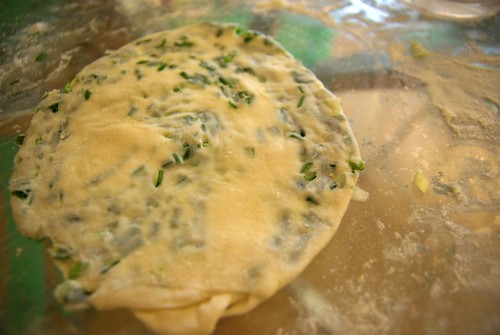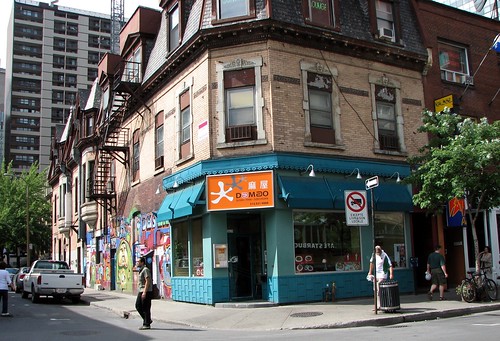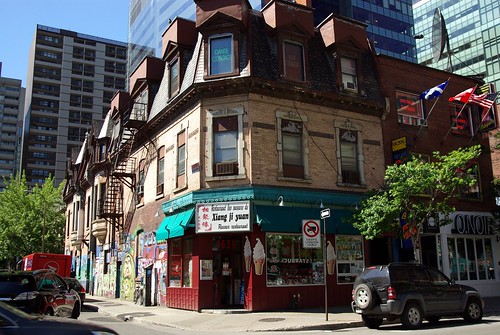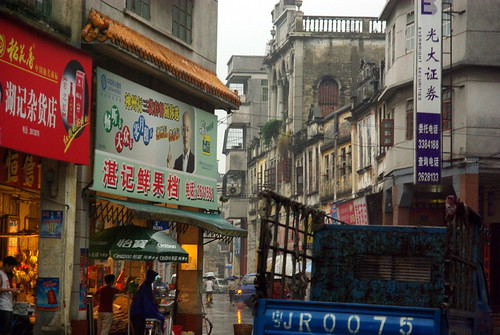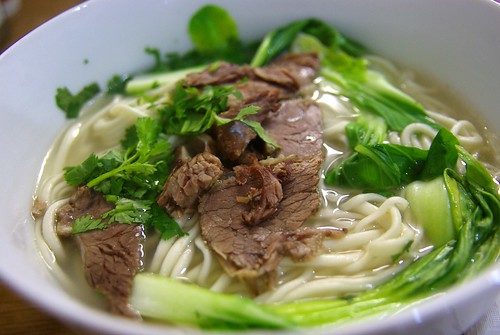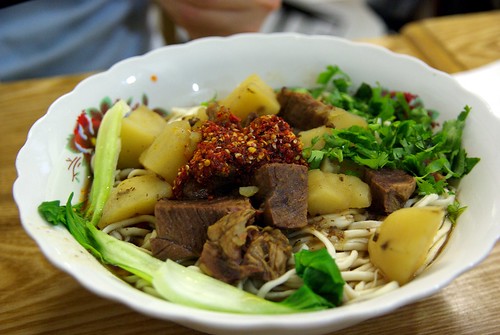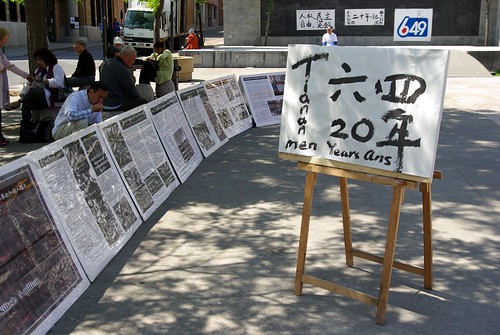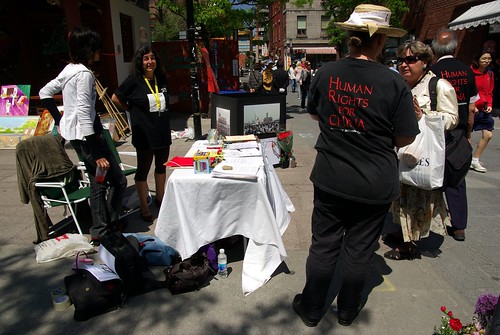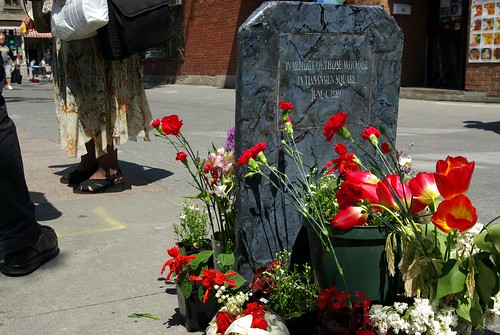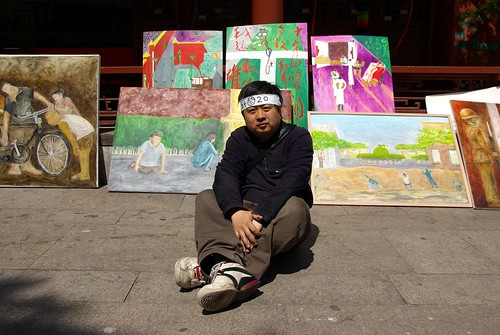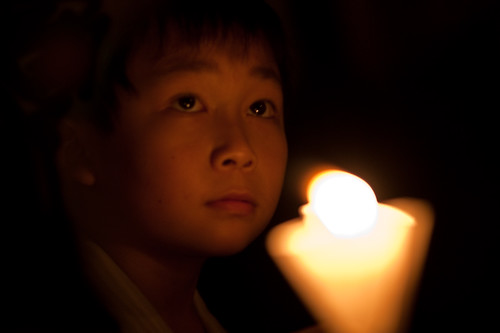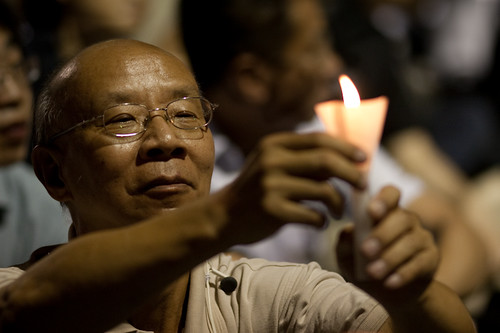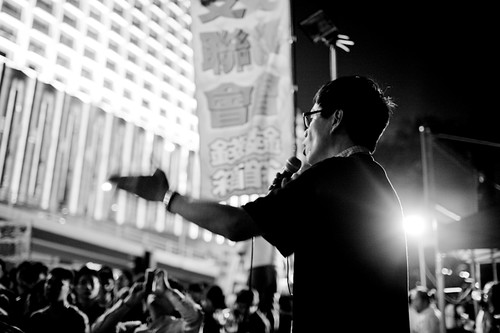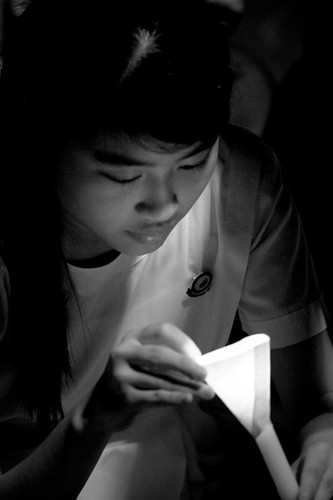
J’ai rencontré Zabrina Law pour Regarde les Chinois en août 2008 lorsqu’elle a visité Montréal avant de partir pour Londres, où elle alla completer une maîtrise. Gradué de l’Université McGill en développement international et en sociologie, Zabrina a également fait partie d’un collectif de femmes de couleur avec l’émission de radio “spitfiyah!” sur la radio étudiante CKUT. On a parlé de famille, vivre (et travailler) à l’étranger, de jouets sexuels (elle a travaillé pour Joy Toyz), d’identités multiples et de piété filiale.
I met with Zabrina Law for Regarde les Chinois back in August 2008 as she visited Montreal before going to London for a Masters degree. A McGill University graduate in international development and sociology, Zabrina also used to be part of a women of colour collective with a radio show called “spitfiyah!”, on the CKUT student radio. We talked about family, living (and working) abroad, sex toys (she worked for Joy Toyz), multiple identities and filial piety.
***
(picking up the microphone as we were already having our conversation/interview…)
Comme les Chinois: … did your parents raise you as a guy. I mean, I heard from (this common friend) that she was also in a family where their father was the eldest son (of the paternal grandparents).
Zabrina Law: (laughs) No, I don’t think my parents paid a lot of attention to the gender because they were both working parents. They rewarded me with toys of my choosing. So they didn’t go out of their way to “filter” these toys, but it was more like media influences on me and me having a desire for a Barbie… or a doll that I could change her diapers. You know, falling into these very gendered roles.
And of course, I had my grandmother at home who I spent the most time with as a child, so, of course I would emulate her and just kinda… idolize her and I always saw her cooking and cleaning, so I wanted to cook and clean as well. And I really wasn’t ever made aware of the gender polarities until young adult life.
And I went to an all-girls school for four years. So, for four years of my life, I didn’t even think about gender. I didn’t even think about power relations in terms of men and women. I just thought about, you know, how to make myself the best individual possible.
CLC: You were raised by your grandmother?
Pretty much, yeah. From the age of a newborn all the way up to grade school, I saw her the most out… You know, she was my (…) caregiver. Both my parents worked full-time and my mother to this day still works twelve hours a day.
CLC: They live in Toronto?
Yes.
CLC: … so you lived with them, but you just never saw them?
Umm. No, I wouldn’t say “never saw them”. I saw my dad much more than my mother did. Because he at some point became a consultant and worked out of home and, you know, he’d be the one driving me to school, take me home from school. He was the one who met my friends, he knew the names of my teachers, he was just much more hands-on than my mother was.
And, yeah, so, in my mind, the most influential male in my life was always so tolerant, always so giving. And that cliche goes that when you finally try to date a guy, you realize that he reminds you of your dad! (laughs)
CLC: (laughs) Have you found anybody then so far?
(laughs) No! Nobody lives up to my father, c’mon!
He’s the best!
Um, but yet, I think that the fact that they both worked, that they were both professionals, and they both attained higher degrees of education, and they both did their graduate degrees in Canada gave them a leg in terms of, you know, the first wave of immigrants in the 60s and the 70s and the 80s onwards.
And that they have Canadian-recognized… they have degrees from institutions in Canada and they speak English with not a detectable accent… if any accent at all, it’s the British accent, because that’s the schooling they received in Hong Kong was all in English, from the British Empire.
So, yeah, if anything, I got pressured to be an academic. (laughs) And not so much a guy!
CLC: Do you want to be an academic?
You know, that path started to look a lot brighter! Like, relative to a 9 to 5 job! (laughs) Setting my own hours, and reading all-day and having my summers off… No, the lifestyle sort of certainly has a leer to it… I don’t know yet!
‘Definitely not one of the math and science streams, which is again where the majority of my family is.
CLC: Oh really?
Yeah, mathmaticians, scientists. Yeah, everybody on my dad’s side of the family has a math or science degree and has gone on… like all the cousins of my generation are either, have a PhD and are a professor, or getting their masters, you know, or on their way.
CLC: And you did an arts degree at McGill.
Yeah. I did international development and sociology, so it’s very difficult to translate to Chinese, like I don’t even know how to say it in Cantonese words?! And one summer, I did an internship in Kenya, and I’m trying to explain to my family the work that I was doing…
CLC: (laughs) Like where Kenya is…
Yeah, where Kenya is, and like it’s not just Africa, and they all though have AIDS… and try to break down those stereotypes. And the language that I am not given the tools to do that in? Because I cannot read or write Chinese. So, a lot of it is colloquial talk.
But yeah, and I was doing something like participatory theatre art on female genital operations in Kenya. So, the language barrier…
CLC: Excision? That’s the name in English?
Yeah. Well, there are multiple names for that. It’s called female genital mutilation. But like, some activists say that “mutilation” is such a derogative word to describe the female body, so they say operation. But they just basically cut the female clitoris off so that she won’t enjoy sex anymore, so that won’t procreate other than with her husband.
Uh, yeah, so it was difficult to just tell my parents and my grandmother that this was what I was doing. Of course my grandma, all she was worried about was, “are you showering?! are you having enough to eat?! where do you eating there?! are they feeding you?!” (laughs)
CLC: (laughs)
So, yeah, that was fun summer. (laughs)
CLC: Anywhere else you went? In the world, travelling, living there.
Yeah, I spent another summer in Spain, where I learned Spanish. You know, this was a bit less… difficult. It was easier for the family to accept, because they were like, it’s a developed country, we know where you’re living, who you’re staying with, and you’re going to school there… You know, whereas in Kenya, I was in the slums everyday and by myself.
But yeah, I know, I think it took some while for my family to realize that I am not like them. I am not as… I am not as naturally studious! (laughs) You know, I am not going to sit in my room and read all day or even in high school, I was not that kind of person, very sociable. And I think that whatever I do, I need to feel very passionate about it? Or at least really like the people, and enjoy the work, and really see the fruits of my labour, before I really get headstrong about it.
CLC: Do you think that if your parents were in a different context, if they didn’t have to immigrate, they would be kind of like you? You know, do things with, like, passion…
… No. (laughs) No, I think that my parents are a result of their upbringing, in the context that they grew up. And my father, he was born right as Japanese invaded, so that’s always a good defining characteristic for him. Out of all his brothers and sisters, he was the oldest, out of all his brothers and sisters, he’s the one that endeared the most, in terms of, the family had no money. You know, poverty, and they were running away. They had sustained on rations, and had one set of clothes.
You know, the ongoing joke with me and my cousins is always the story of our parents, talking together, “you know, when we were kids, we only had *one* toy, and that toy, we shared between all four of us”.
CLC: (laughs) You lived in Hong Kong?
I went there every summer, as a kid, because my grandmother, who raised me, still had her son and daughter there…
CLC: So your aunt and uncle? (laughs)
Yeah, my aunt and uncle are still there, we go back. All my cousins are from there. They’ve actually emigrated in the 90s, after the Hong Kong handover, so there were times when I felt really at home in Hong Kong, and that I belonged, because I had always lived there in the summer, I went to the 街市 (kai si / road market), and I’d bargain, I would see my grandmother tell people to kill themselves at night because she didn’t get the price that she wanted… It’s a really useful skill to be streetwise in bargaining. (laughs)
CLC: What did you like the most about Hong Kong?
The food. (laughs) It’s always the food.
CLC: Where would you hangout?
When I was younger, I was just with my family. Now, I don’t really have friends there. I mean, I’d see Tiffany… I think like I mentioned this at dim sum (earlier) too, I feel like I constantly have to choose between being a local and being an expat there. Because once locals find that I speak English without an accent, they all then suddenly treat me differently.
CLC: Even though you speak very good Chinese. Your Chinese is without accent.
Yeah, my Cantonese is without accent as well, but as soon as I switch or as soon as they hear me speak English, it’s just a different treatment.
And even TIffany and I, Chinese Canadians, look Chinese – she even has like paler skin than I do. I mean, I’m pretty dark. But we were in the MTR speaking English, and we get stared at by everybody, not just the Chinese locals, but the Whites also. You know, they were just so surprised to see Chinese people speaking perfect English in Hong Kong.
CLC: That’s in Hong Kong. You’re not even talking about China. We’re talking about Hong Kong, where people learn English…
Exactly, but just that I feel that the labels are really static and very concrete, almost? I thought that it was very difficult to have multiple identities there. The same identities that I would manage in Canada: very different there.
CLC: So, did you have a show on CKUT?
Yeah!
CLC: Tell me about it… I don’t actually know the show, but I just know that you have a show! (laughs)
The show’s called “spitfiyah!”, it’s a women of colour collective. It’s actually been going on for close to a decade now.
CLC: It’s still going on, right?
It’s still going on. It’s a collective, so it’s usually about 4 to 6 women of colour, giving culture critique to the mainstream media. So, we would do reporting on things like events going on in public sphere that doesn’t receive the kind of perspective that we have. It’s very alternative and progressive. One of my favourite shows was like Asian history month, when we just reviewed a bunch of Asian American magazines. Of course, they have major publications in the Bay area in the States, and you know, very limited distribution up here. You know, that kind of journalism that’s… I don’t want to use the word “reactionary”, because that sounds very almost like violent…
CLC: Reactionary, in the sense that they are reacting to how the mainstream population is perceiving the Asian American culture, Asian Americans?
Totally! Absolutely! And what’s cool about the collective is that we would always meet up and (deviate off?), so we would just be working on stories that we found interesting. So, I covered stories from the shooting in the college.
CLC: Virginia Tech.
Yeah, Virginia Tech. Um, to the travelling play Misoriented that came here. It was a play written by a Filipino Canadian and it’s just kinda break down stereotypes of Filipino women in Canada. So, from the nurse, like the Overseas nanny to the Fresh Off the Boat person, you know, glamorizes popular culture like Beyoncé and rap music and these top 40 bands that are just cheesy to locals here? And then the Filipino woman who wants to… dyes her hair blond and wants to be hyper-assimilated, you know.
So we just offer insides to things like that and just try to push the envelope and make people think about an alternative way in trying to decipher and these images. Images are so powerful. They happen in, you know, two seconds, flat, less than that. And the split judgements that we innately make have been informed all throughout childhood until now from the mainstream media images, you know with race, gender and class. We just try to twist, put on its head, and try to start from the beginning.
It’s a lot of sociology talk! (laughs) Overwhelmingly, a lot of the girls and women involved in the show are sociologists!
CLC: And do you want to do more media after this.
Yeah! We never close the door on this. Absolutely! It’s just hard to carve a role in such a, you know, sphere that has so much movement and is constantly changing.
CLC: I’m going to steer the interview like that (180 degrees turn)… You do sex toys presentations?
Yeah! (laughs) Everything you ask me, I’m like so enthusiastic. But it’s good.
CLC: How did you get involved with that? Well, actually I don’t need to ask you, it’s on the radio show (on CBC Radio One’s Mashup in 2008, on the July 8 & 10 episode “Let’s talk about sex”) right!
(laughs) Yeah, most of Canada might know!
One of my friends had a sex toy party. I went, and I thought it was a great idea and then I hosted one. Then the owner actually came and did my party. And the owner is a Chinese Canadian, and I was very pleased and surprised to see that an ethnic minority could own such a business and be one her own two feet and be also spreading such good news and good word about sexuality.
What’s unique about the company that I worked for, Joy Toyz, is that one of their main mandates is also to be inclusive of the LGBT community and whenever you speak, as part of your training, you never assume that they’re heterosexual couples. You always speak to it as your “partner”, not girlfriend or boyfriend, um, and she also goes through, and she gives a very feminist take on vibrators.
When I do a presentation, I go through the history of the vibrator, so I go back to the twenties. I’ve pictures of antique vibrators, ones that are plug-ins, ones that are, you know, *massive*, the size of like an arm! And are cranks! And going through the history of how male doctors actually invented them to cure hysteria for women.
CLC: Oh yeah? What/why’s that?
Hysteria… this is really fu**** up.
CLC: Oh yeah, is this old, like in the 19th century?
Yeah, around there… And of course, you know, the gendered industries are (that) men are doctors, and women go and see them. And hysteria is — an actual diagnosis in the DSM that was generally diagnosed to women who were moody, emotional, sad — you know, all these very hormonal characteristics.
And they were generally diagnosed to women who had been widowed from the war, who weren’t dating, who had no children. So basically, women who weren’t getting laid. Were diagnosed with “hysteria”, that was really sexual frustration.
So doctors started mainly by manually massaging them, so manual stimulation. So these women would basically go to the doctor.
CLC: And the doctor would… (finger gesture)
Yeah! Do their business. They would basically jack them off and get paid for it! Imagine that job! (laughs)
CLC: Yeah!
And eventually, the doctors were like, wow, too many women are coming…
CLC: … it’s getting tiresome. (laughs)
It’s getting my hand cramps, so let’s create toys for this, machines. And then fast-forward a few decades and now we have companies like Joy Toyz that are completely telling that story and also filtering through the entire industry of sex toys, which is huge, multimillion dollars. It’s just very under wraps because most of them… the biggest market of it obviously is, you know, in Western democratic… in liberal democracies, like in Europe and here.
But in America, there’s huge Bible belts, and it’s not advertised. Even a lot of the vibrators, say, they state that this is not intended for internal use, even though it can be safely used as such. They’re usually called “massagers”, for your temples, joints…
CLC: …but they happen to be shaped like (makes phallic shape)… (laughs)
Exactly, so we get creative!
CLC: Yeah, I dunno, I’ve been reading stuff about sex shops in China… Do you know anything about sex toys, shops in China? Or even in Hong Kong, where you lived? Were you already working for (Joy Toyz) when you were in Hong Kong?
Yeah. I was. But I was living with my grandfather. So it was almost like I stepped into a different personality! I wasn’t walking around with my suitcase full of dildos in Hong Kong. (laughs) But, I didn’t happen to see any of that. I wish I did though. What did you see?
CLC: No, I didn’t see anything! (I actually did, for instance in Beijing) I just read the reports and saw sex shops… Apparently, sex shops don’t really advertise themselves in China. You have to look for it. It’s like (called) “Adult” something-something (“health care”)…
Woaw! Do you understand mandarin? or Cantonese. Can you read or write?
CLC: Um, yeah a little bit. I have two levels of (university) mandarin. Approximately the same colloquial Cantonese, but I didn’t need to speak Cantonese at home.
So if you wanted to find these adult stores, could you in China, if they were written in Chinese?
CLC: Yeah, if somebody wrote it down for me! (laughs) Would you like to learn Chinese?
Yeah. I did one level of Chinese, Mandarin, as well.
CLC: At McGill?
Yeah, at McGill. I went to Chinese school all throughout my childhood on Saturdays. The dreaded Chinese Canadian activity! (laughs) I feel like a band of Chinese Canadians, at least in this generation anyways, often have that one thing in common where parents (sent us) to the Chinese school. And we didn’t retain anything. (laughs)
CLC: (laughs) Yeah, yeah, that’s what they usually say.
Yeah, it was just kind of like… I mean, it’s interesting how etymology and how the characters get embedded in my mind. Because when I first learned, I learned Traditional characters. But of course now, in university, we learn the Simplified. So, it’s almost like a mishmash of both…
CLC: It helps you understand the etymology of the language as well.
It does. Only that, my only beef with the Chinese program at McGill is that they didn’t teach you the brush strokes. So it was kind of like you could do, make the character, it doesn’t matter how you write it. But that’s really important, if you want to try to use the Chinese-English dictionary. The brush strokes make a big difference. And it will help you in the end to learn more characters.
So yeah. I always feel like it is one of those things that I want to do in the distance, like move to China and then live there.
CLC: Yeah, and would you do that?
I would. But that’s always kind of like, when do I have time to do that now?
CLC: You have four years (in England). Three years or four years?
I’ve one year in England.
CLC: What are you doing in England?
I’m doing a masters in globalization and criminology. (Editor’s note: she’s done by now, I guess!)
CLC: Criminology?
Yeah… So, I mean, it’s hard to find time to fit in, to satisfy the Chinese desires of my identity, because… I mean, this was always what I was fighting with too with myself: the struggle of “I am Chinese Canadian and I am a visible minority and I am a female”… And you read all these kind of… You’re just so aware of this discriminatory policies, discrimination and how people might treat me differently, because of the physical characteristics that I can’t change. This is just who I am.
And so, I spent a lot of time thinking about it and studying and writing about things like equality policy, and how to “level the playing field”. Things like affirmative action policies and if they’ll really work and really help to make… break down some of the systemic barriers against women of colour, like. But at the same time, I’m thinking, you know what, screw all that. If it’s really going to be equal, it shouldn’t matter… If it’s really a meritocracy, it shouldn’t matter what you look it.
If anything, if you work hard enough, and you attain the opportunities, then you’ll make it no matter what. So it’s kinda like… it’s how I think of, you know, speaking Chinese, learning it more, not so much that it is this kind of emotional connection for me and my home country, but it’s more like how it will make me a better person in this day and age — how will this make me a better representative, what have you for the Chinese community, how will that make me, you know, get my parents more proud of me and my grandparents…
Like, geez, listen, I can’t believe I just said that! This is just filial piety coming out of my mouth! (laughs) But all these things are conflating into one person’s identity that we have to think about and especially when you are transcontinental, when you are thinking about existing in a context, in the East as well as one in the West. You know, it becomes… almost as… you have to trust your gut instincts and forget all about the systemic things and stop being angry! (laughs) People are angry a lot in this scene!
CLC: I’m going to wrap this up… so my last question is: who are you?
Oh Cedric, that’s such a hard one! (laughs)
CLC: That’s why I ask it!
Uhm, I’m Zabrina Law! … and they should have a dictionary entry for that, and they can tell you! (laughs)
CLC: Or a Wikipedia (entry)!
Yeah, Wikipedia entry, there you go. No, I think I’m multiple things in different scenarios and I think that this is the beauty of growing up in this context, that you really have the power to choose. And no matter… I mean, generational and Chinese… Just let me think… I’m thinking as a theorist, I’m thinking academia… (laughs)
This guy Herbert Gans keeps on coming in my mind because he’s influenced my life greatly. He’s a dead white guy (laughs) that wrote about sociology a long time ago. He coined the term “symbolic ethnicity” and I think that’s exactly what has happened to me as a first-generation Chinese Canadian. He says that with each descending generation, ethnicity comes more and more symbolic, such that the person and individual has the power and the perogative and the free will to choose their ethnicity, to choose what cultural, ritualistic activities they choose to participate in.
So I speak Cantonese at home and I speak Cantonese fluently. And I use chopsticks. I know all my favourite Chinese dishes, so I don’t need to learn how to read Chinese at the restaurant, because I already know them all!
But my kids might not have all that. My kids may only just celebrate Chinese New Year or the Lunar New Year, and that might be their only connectivity to the culture. But for me, because I grew up with my grandmother, I lived it and it’s only now in my adulthood where I’m beginning to eke out my own identity away from my family that I’m realizing, geez, I’m not as attached to these Chinese rituals as I was. I did them to be filial.
CLC: Well thank you Zabrina!
(laughs) Thanks!

